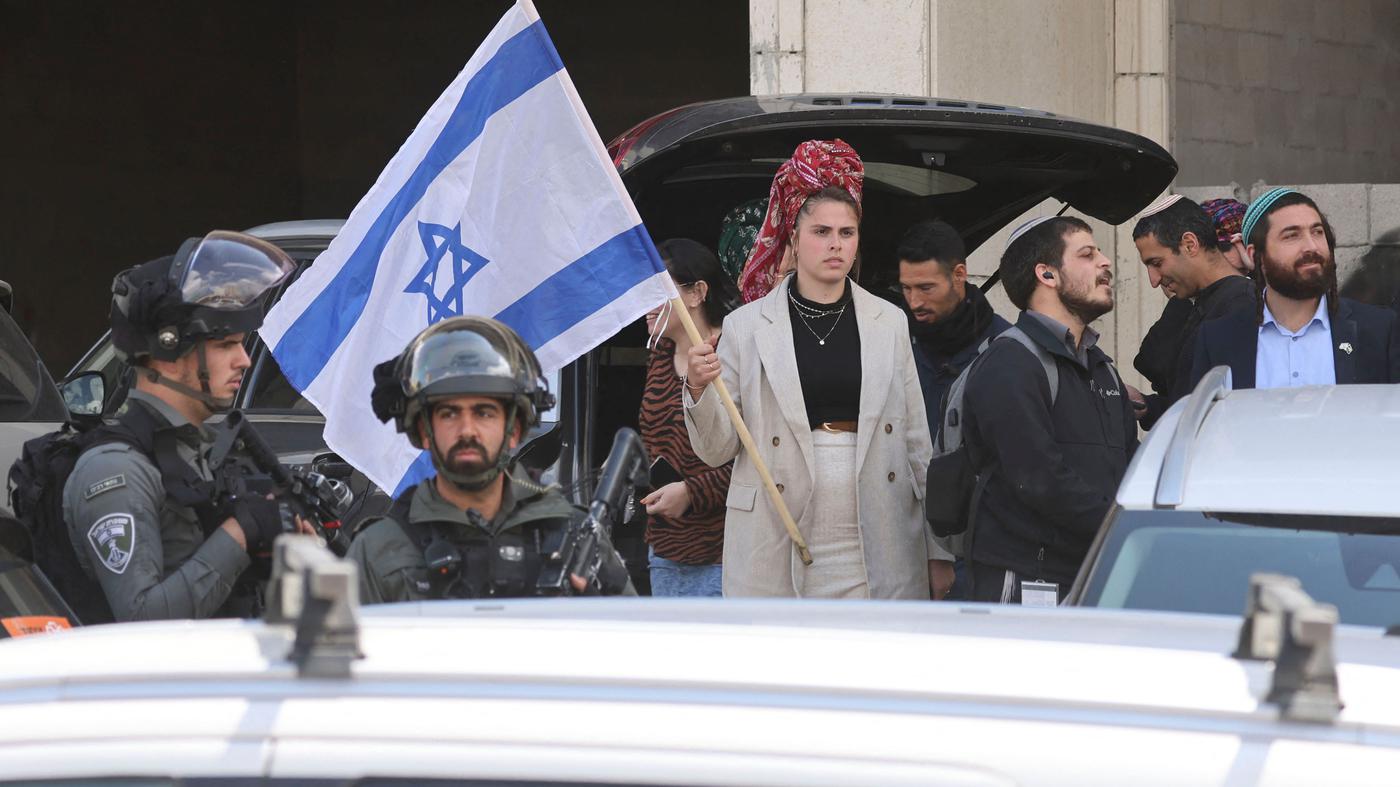The raid by hundreds of Israeli settlers on the Palestinian village of Huwara made international headlines briefly in February. One Palestinian died and many were wounded. About 30 houses and 100 cars were set on fire. The Israeli army did not intervene for hours.
The consequences: on the perpetrators’ side, two of the hundreds of settlers involved were put under house arrest for a few days. The attacked residents of the Palestinian village were forced to close their shops for a week. To avoid further attacks by Jewish settlers.
According to experts, this process shows a pattern of Israeli occupation policy. “The perpetrators are not being prosecuted and the victims are being sanctioned,” says Michael Sfard, an Israeli lawyer and human rights activist, in the Tagesspiegel. The longtime observer complains that since the 1970s laws have only been sporadically enforced against settlers in the occupied territories.
Settlers see themselves as vanguard
There has always been some kind of cooperation between the Israeli government, army and settlers. Settlers see themselves as the “vanguard” who forcibly evict Palestinians from their farmland and take permanent possession of it through the construction of improvised mini-settlements.
The army leadership criticizes this regularly and rejects the settlers in some cases. Most of the time, however, the army protects the settlers and thus covers up their illegal actions.
“From a bird’s-eye view,” it becomes clear “that the army was complicit in the massive land grabbing of the Palestinians,” says lawyer Sfard. Even if the Supreme Court has in the past ruled new settlements on private Palestinian land illegal, the army would not have enforced it against the settlers. “I was often there,” says the human rights activist, “in thousands of cases nothing happened.”
Youssef Mnaili from the Central European University in Vienna and Budapest, who researched the relationship between the Israeli state, the army and the settlers for his doctoral thesis, goes even further: The settlers are taking on tasks that the military authorities responsible for the West Bank are often unable to take on.
The Israeli state avoids any accountability for the settlers’ violence.
Youssef Mnaili, Researcher at the Central European University in Vienna/Budapest
For example, instead of soldiers, the settlers, who are mostly located on top of the hills, watched the comings and goings in Palestinian villages, which are often located in the valleys.
At the same time, the army keeps watching when settlers attack Palestinians. Mnaili describes this as a kind of “delegated power”. The approach allows the Israeli state to avoid “any accountability,” says the Moroccan scientist.
In the new government, the settlers are in control and can do whatever they want.
Michael Sfar, Israeli lawyer and human rights activist
The relationship between the settlers, the army and the government was “always – to varying degrees – one of collaboration”, analyzes lawyer Michael Sfard. Under the current extreme right-wing religious government, it is only more obvious. Now the settlers’ representatives are “in the driver’s seat and can do whatever they want”.
In the new government, religious fundamentalist and settler Bezalel Smotrich, leader of the Religious Zionist Party, is not only finance minister; the new post of second minister in the Ministry of Defense was also created for him, overseeing the “civilian administration” of the occupied Palestinian territories.
This puts the hardliner, demanding the annexation of the occupied territories, in charge of government activities in the West Bank, dealing with international organizations there, and controlling settlement construction. For which he, in turn, as finance minister, can provide the funds. This makes Smotrich “the de facto prime minister of the occupied territories,” says Mnaili.
Hebron as the crew’s laboratory
The development comes as no real surprise to Israeli filmmaker Noam Sheiaf. His new documentary, H2 Occupation Lab, uses the example of radical Jewish settlers in downtown Hebron, West Bank, to show the pattern by which the settlers operate. “H2” is the part of the city center where Israel remains responsible for security under the Oslo Accords. About 35,000 Palestinians and 500 Jewish settlers live here.

Since settler Baruch Goldstein shot 29 Muslims in a mosque at the end of the main street in 1994, Palestinian shops have been closed on the one-kilometer Barzar Street.
To protect the Palestinians from settler attacks, they must close their shops.
Noam Sheizaf, Israeli filmmaker
“It’s just like in Huwara recently,” says Sheizaf, “to protect the Palestinians from further attacks and to avoid provocations by settlers, the Palestinians had to close their shops after the pogrom.” After all, only a week, in Hebron is the former Shopping street deserted for 30 years.
For the settlers, the political question of how to govern a foreign population is a “pure security issue,” says Sheizaf, whose most recent film was recently shown in Berlin at the invitation of the New Israel Fund. This mindset of people like Minister Smotrich is now official policy.
But according to Sheisaf and other critics, Hebron is not just a laboratory for Israel’s occupation policy. Lawyer Sfar analyzes that the culture of ignorance of the law and at the same time of a heavy hand that developed during the occupation policy will also be felt in Israel itself under the new government. “I call this the ‘Hebronization’ of Israeli politics.”
Example “judicial reform”: It is an attempt to create an arm of government with unlimited power – “that is exactly what we have been doing in the West Bank for 56 years”. Since the 1970s, left-wing Israelis have fought against the creeping annexation of the West Bank. But now it’s the other way around: “The culture of government developed in the occupied territories is now spilling over to Israel.”
